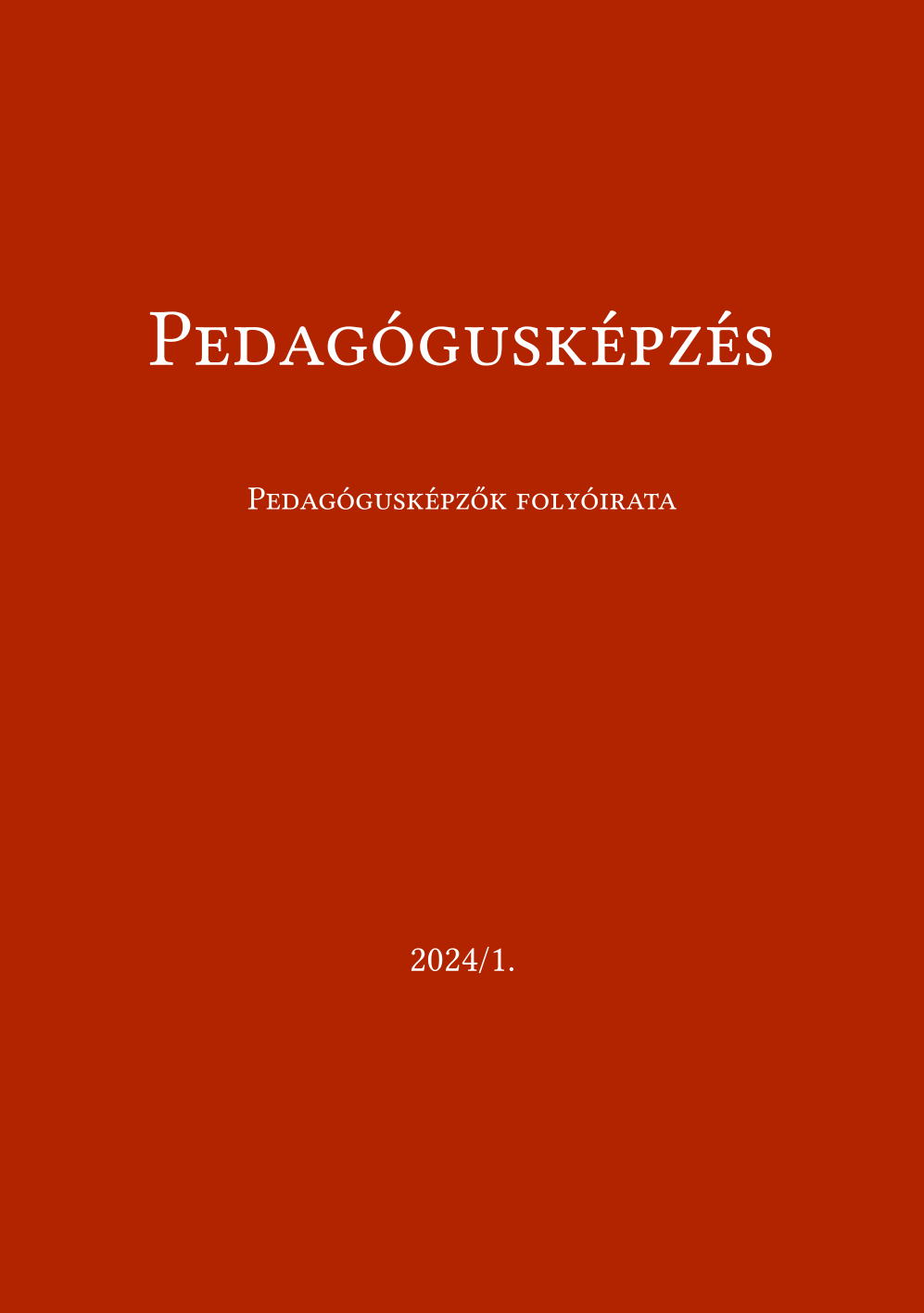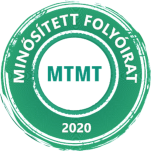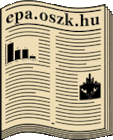A MSLQ és a MAI magyar változatainak validálása a kisebbségi magyar hallgatók körében folytatandó kutatáshoz
DOI:
https://doi.org/10.37205/TEL-hun.2024.1.03Kulcsszavak:
önszabályozó tanulás, metakogníció, megismerés, motiváció, tanulási stratégia, önhatékonyság, pedagógia szakos hallgató, magyar kisebbségi oktatásAbsztrakt
Ma a tanulás több szabadságot biztosít a diákoknak, mint a múltban, többek között a tartalomhoz vagy a tananyagokhoz való könnyű hozzáférést és a rugalmas időbeosztás lehetőségét, szemben a hagyományos oktatással, amikor az iskolában, a tanteremben kellett tölteniük az idejüket. Az önszabályozó tanulás képességének (angolul self- regulated learning: SRL) fejlettségétől függenek azok a kognitív, metakognitív és motivációs készségek, amelyek lehetővé teszik a tanulók számára a kihívások leküzdését és saját tanulásuk hatékony megszervezését.
A ’Motivated Strategies for Learning Questionnaire’ (MSLQ) elnevezésű kérdőív a diákok önszabályozó tanulási készségeinek felmérésére szolgáló eszköz. Schraw és Dennison ’Metacognition Awareness Inventory (MAI) elnevezésű kérdőíve a tanulók metakognitív képességeinek vizsgálatát szolgálja.
E cikk célja, hogy feltárja és értékelje a tanulók önszabályozó tanulásával és metakogníciójával, az SRL elméletekkel és fogalmakkal kapcsolatos releváns szakirodalmat. Célja továbbá, hogy a Selye János Egyetem pedagógiai szakos hallgatóinak mintáján meghatározza a fent említett két eszköz magyar nyelvű változatainak megbízhatóságát és érvényességét. A vizsgálatban 120 pedagógia szakos hallgató vett részt, akik közül 102 nő volt. Az MSLQ motivációs skála A komponensében hat alskála található, és ezek Cronbach-alfái a következők: IGO α = 0,69, EGO α = 0,84, TV = 0,86, CLB α = 0,52, SE α = 0,86 és TA α = 0,74. A B komponensben, amely a tanulási stratégiák kilenc alskáláját tartalmazza, az R α értéke 0,69; az E α értéke 0,75; az O α értéke 0,85; a CT α értéke 0,60; az MSR α értéke 0,80; a TSE α értéke 0,66; az ER α értéke 0,80; a PL α értéke 0,87; és a HS α értéke 0,57. Ami a MAI-t illeti, két fő komponensének, a megismerés ismeretének (KC) és a megismerés szabályozásának (RC) Cronbach alfa értékeit vizsgáltuk. A KC-t három alskála alkotja: PK, DK és CK. Cronbach Alpha értékeik pedig 0,82, 0,86 és 0,71 voltak. Az RC-t öt alskála alkotja. Ezek Cronbach-alfa értékei a következők voltak: A P α értéke 0,83, az IMS α értéke 0,83, a CM α értéke 0,77, a DS α értéke 0,74, az E α értéke pedig 0,70.
Hivatkozások
Bandura, A. (1989). Social cognitive theory. In R. Vasta (Ed.), Annals of child development. Vol. 6. Six theories of child development (pp. 1–60). JAI Press.
Boekaerts, M. (1997). Self-regulated learning: A new concept embraced by researchers, policy makers, educators, teachers, and students. Learning and Instruction, 7, 161–186. https://doi.org/10.1016/S0959-4752(96)000 15-1
Boekaerts, M., Pintrich, P. R., & Zeidner, M. (Eds.) (2000). Handbook of self-regulation. Academic Press. https://doi.org/10.1016/B978-0-12-1098 90-2.X5027-6
Boekaerts, M., & Corno, L. (2005). Self-Regulation in the Classroom: A Perspective on Assessment and Intervention. Applied Psychology, 54(2), 199–231. https://doi.org/10.1111/j.1464-0597.2005.00205.x
Brown, A. (1987). Metacognition, executive control, self-regulation, and other more mysterious mechanisms. In F. E. Weinert & R. H. Kluwe, (Eds.), Metacognition, motivation, and understanding (pp. 65–116). Lawrence Erlbaum.
Jackson, C. R. (2018). Validating and Adapting the Motivated Strategies for Learning Questionnaire (MSLQ) for STEM Courses at an HBCU. AERA Open, 4(4). https://doi.org/10.1177/23 3285 84188093 46
Efklides, A. (2011). Interactions of metacognition with motivation and affect in selfregulated learning: The MASRL model. Educational Psychologist, 46(1), 6–25. https://doi.org/10.1080/004 6152 0.2011.538645
Efklides, A. (2019). Gifted students and self-regulated learning: The MASRL model and its implications for SRL. High Ability Studies, 30(1–2), 79–102. https://doi.org/10.1080/135 9813 9.2018.1556069
Ejubović, A. & Puška, A. (2019). Impact of self-regulated learning on academic performance and satisfaction of students in the online environment. Knowledge Management & E-Learning, 11(3), 345–363. https://doi.org/10.34105/j.kmel.2019.11.018
Pelikan, E. R., Luftenegger, M., Holzer, J., Korlat, S., Spiel, C., & Schober, B. (2021). Learning during COVID-19: the role of self-regulated learning, motivation, and procrastination for perceived competence. Zeitschrift fur Erziehungswissenschaft, 24(2), 393–418. https://doi.org/10.1007/s116 18-021-010 02-x
Flavell, J. H. (1971). First discussant's comments: What is memory development the development of? Human Development, 14(4), 272–278.
https://doi.org/10.1159/0002 7122 1
Flavell, J. H. (1979). Metacognition and cognitive monitoring: A new area of cognitive– developmental inquiry. American Psychologist, 34(10), 906–911. https://doi.org/10.1037/0003-066X.34.10.906
Flavell, J. H. (1987). Speculations about the Nature and Development of Metacognition. In F. E. Weinert, & R. Kluwe (Eds.), Metacognition, Motivation, and Understanding (pp. 21–29). Lawrence Erlbaum.
George, D., & Mallery, P. (2003). SPSS for Windows step by step: A simple guide and regerence. 11.0 update (4th ed.). Allyn and Bacon.
Hacker, D. J. (1998). Definitions and empirical foundations. In D. J. Hacker, J. Dunloky, & A. C. Graesser (Eds.), Metacognition in educational theory and practice (pp. 1–23). Lawrence Erlbaum.
Kallio, H., Virta, K. & Kallio, M. (2018). Modelling the Components of Metacognitive Awareness. International Journal of Educational Psychology, 7(2), 94–122. https://doi.org/10.17583/ijep.2018.2789
Honicke, T. & Broadbent, J. (2016). The Relation of Academic Self-Efficacy to University Student Academic Performance: A Systematic Review. Educational Research Review, 17, 63–84. http://dx.doi.org/10.1016/j.edurev.2015.11.002
Jacobs, J. E. & Paris, S. G. (1987). Children’s Metacognition About Reading: issues in Definition, Measurement, and Instruction. Educational Psychologist, 22(3–4), 255–278. https://doi.org/10.1080/004 6152 0.1987.9653052
Karlen, Y., Hertel, S. & Hirt, C. N. (2020). Teachers’ Professional Competences in Self-Regulated Learning: An Approach to Integrate Teachers’ Competences as Self-Regulated Learners and as Agents of Self-Regulated Learning in a Holistic Manner. Frontiers in Education, 5(159). https://doi.org/10.3389/feduc.2020.00159
Martos, T., Jagodics, B., Kőrossy, J. & Szabo, E. (2021). Psychological resources, dropout risk and academic performance in university students – pattern-oriented analysis and prospective study of Hungarian freshmen. Current Psychology, 42, 8051–8065. https://doi.org/10.1007/s121 44-021-020 73
Mercator-Education. (2005). Hungarian – The Hungarian Language in Education in Slovakia. Mercator-Education.
Panadero, E. (2017). A review of self-regulated learning: six models and four directions for research. Frontiers in Psychology, 8(422). https://doi.org/10.3389/fpsyg.2017.00422
Phavadee, S. (2020). Metacognition and the better learners’ performance in the learning. In 12th International Conference of J. Selye University. Sections of Pedagogy and Informatics. Conference Proceedings (pp. 203–210). J. Selye University. https://doi.org/10.36007/3778.2020.203
Pintrich, P. (2003). A Motivational Science Perspective on the Role of Student Motivation in Learning and Teaching Contexts. Journal of Educational Psychology, 667–686. https://doi.org/10.1037/0022-0663.95.4.667
Pintrich, P., Smith, D., Garcia, T., & McKeachie, W. (1991). A Manual for the Use of the Motivated Strategies for Learning Questionnaire (MSLQ). University of Michigan.
Pintrich, P. R., Smith, D. A. F., Garcia, T. & McKeachie, W. J. (1993). Reliability and Predictive Validity of the Motivated Strategies for Learning Questionnaire (Mslq). Educational and Psychological Measurement, 53(3), 801–813. https://doi.org/10.1177/00 1316 44930530 0302 4
Reder, L. M. (1996). Different Research Programs on Metacognition: Are the boundaries imaginary? Learning and Individual Differences, 8(4), 383–390. https://doi.org/10.1016/S1041-6080(96)900 24-2
Reder, L. M. & Schunn, C. D. (1996). Metacognition does not imply awareness: Stategy choice is governed by implicit learning and memory. In Reder, L. M. (Ed.) Implicit Memory and Metacognition (pp. 45–77). Erlbaum.
Roth A., Ogrin, S. & Schmitz, B. (2016). Assessing self-regulated learning in higher education: a systematic literature review of self-report instruments. Educational Assessment, Evaluation and Accountability, 28(3), 225–250. https://doi.org/10.1007/s110 92-015-9229-2
Schraw, G. & Dennison, R. S. (1994). Assessing Metacognitive Awareness. Contemporary Educational Psychology, 19, 460–475. https://doi.org/10.1006/ceps.1994.1033
Shi, J., Mo, X. & Sun, Z. (2012). Content validity index in scale development. Shi J., Mo X., Sun Z. Zhong Nan Da Xue Xue Bao Yi Xue Ban, 37(2), 152–155.
Taranto, D. & Buchanan, M. (2020). Sustaining Lifelong Learning: A Self-Regulated Learning (SRL) Approach. Discourse and Communication for Sustainable Education, 11(1) 5–15. https://doi.org/10.2478/dcse-2020-0002
Tobach, E., Aronson, L. R. & Shaw, E. (Eds.) (1971). Biopsychology of development. Academic Press.
Triquet, K., Peeters, J. & Lombaerts, K. (2017). Self-Regulated Learning Online: Empirical Foundations, Promotion & Evaluation for Teacher Professional Development. Contributing SRL Part to TeachUP. A policy experimentation co-funded by Erasmus+. Deliverable D1.1: Gaps in ITE and CPD provision report. Department of Educational Sciences, Vrije Universiteit Brussel.
Vamos, A. & Lenard S. (Eds.) (2014). Training Programme and Organisation in the bologna Process of Hungarian Higher Education: The BABE Project. Faculty of Education and Psychology of Eotvos Lorand University.
Wenden, A. (1998). Metacognitive Knowledge and Language Learning. Applied Linguistics, 19(4), 515–537. https://doi.org/10.1093/applin/19.4.515
Xiao, S., Yao, K. & Wang, T. (2019). The Relationships of Self-regulated Learning and Academic Achievement in University Students. SHS Web of Conferences, 60. https://doi.org/10.1051/shsconf/201 9600 1003
Zimmerman, B. & Schunk, D. (Eds.) (1989). Self-Regulated Learning and Academic Achievement: Theory, Research, and Practice. Springer Verlag. https://doi.org/10.1007/978-1-4612-3618-4
##submission.downloads##
Megjelent
Hogyan kell idézni
Folyóiratszám
Rovat
License
Copyright (c) 2024 A szerző(k)

This work is licensed under a Creative Commons Attribution-NonCommercial-NoDerivatives 4.0 International License.








